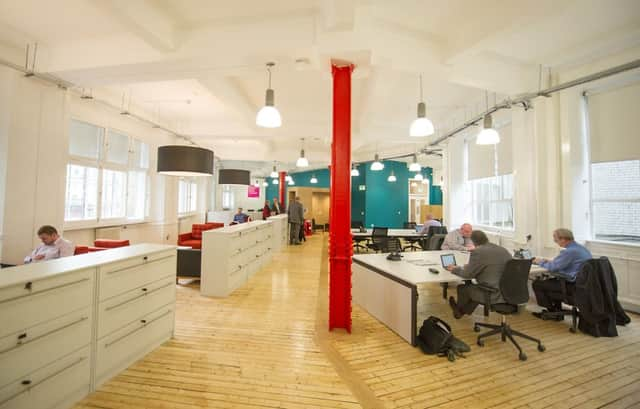Digital strategy could lead to tech jobs boost in Scotland


But bridging the connectivity gap between urban and rural areas remains a challenge, with the difference in internet speeds steadily widening.
Finance minister Derek Mackay visited Glasgow this morning to launch the Scottish Government’s new digital strategy, predicting that 150,000 tech jobs could be created north of the border if the right conditions were created in the coming years.
Advertisement
Hide AdAdvertisement
Hide AdThe plan aims to ensure that every premises in Scotland is able to access broadband speeds of at least 30Mbps by 2021.
An evidence briefing paper prepared for ministers found there was a steady increase in the percentage of premises where next generation broadband access is available, from 41 per cent in 2011 to 88 per cent in 2016.
4G coverage has steadily increased, with 92 per cent of premises having outdoor 4G mobile coverage from at least one national mobile network operator and 58 per cent having outdoor coverage from all four 4G networks.
But rural communities remain worse off. While average broadband speeds have increased in both urban and rural areas over time, but the gap between the areas has widened and stands at 24 Mbits/s in 2016.
The percentage of Scots using the internet for personal use has increased over time, from 63 per cent in 2007 to 82 per cent in 2015 - but use is strongly linked to age and income.
But less than a third of people aged 75 and older used the internet in 2015, compared to 97 per cent of 16-24 year-olds.
The gap in internet usage between the lowest and highest income brackets has decreased from 58 per cent in 2007 to 21 per cent in 2015.
“Digital is transforming the way we live. It is connecting us faster than ever before while putting more power into the hands of service users. There is a huge opportunity here and now to ensure that people, businesses and organisations across Scotland, are given the tools and skills they need to harness this potential.
Advertisement
Hide AdAdvertisement
Hide Ad“Our vision is for Scotland to become even more digitally competitive and attractive,” Mackay said.
“By developing our existing workforce and increasing our digital capabilities across society and the business community, we will ensure that our citizens have the opportunity to improve their digital skills with everyone who wants to get connected able to do so, and public services designed by and for citizens that are secure. This will in turn will have a positive impact on growing our economy.”
The minister was speaking at The Tontine, a landmark Victorian building at Glasgow Cross that was converted last year into a acceleration and growth space for tech start-ups.